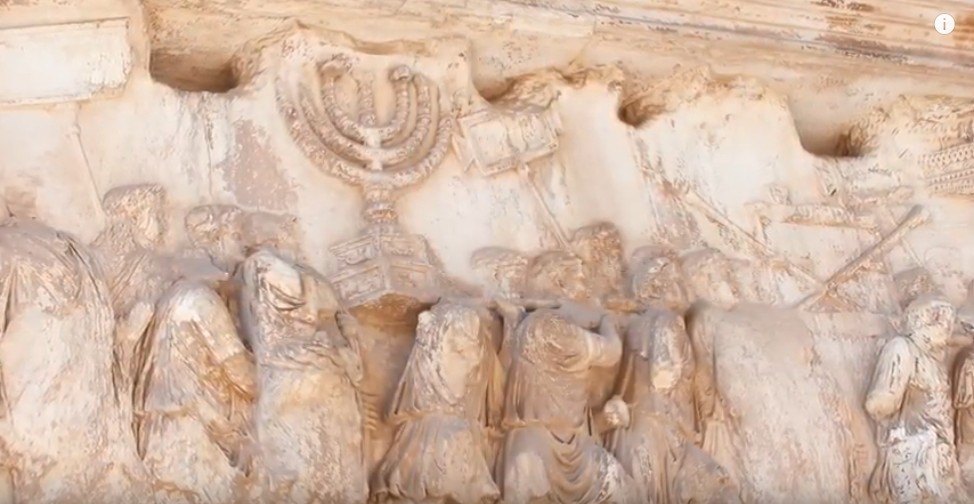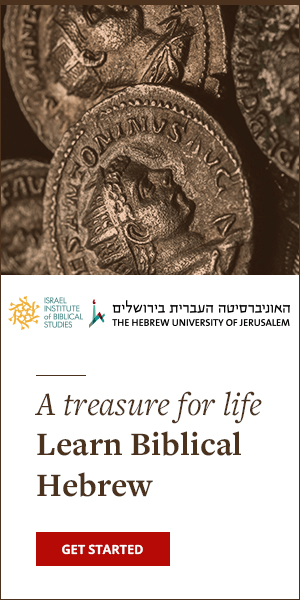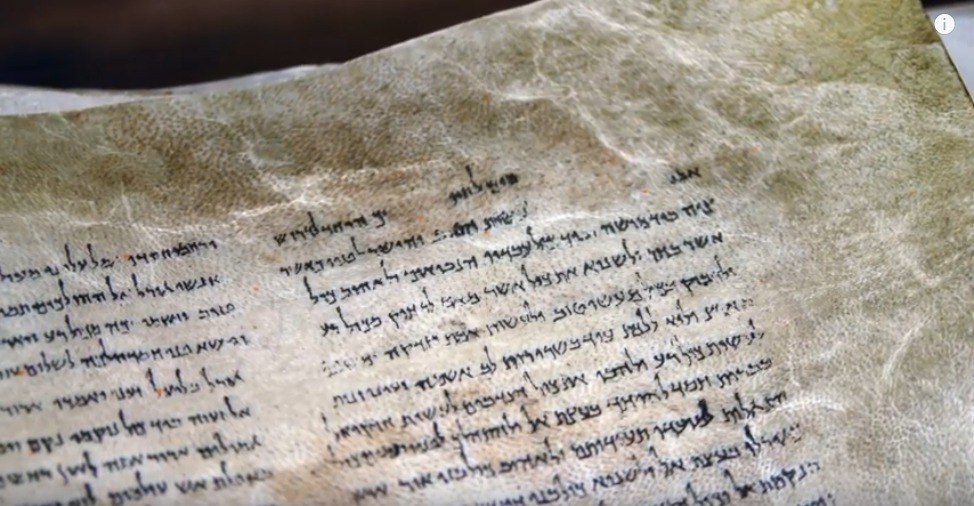 Believers all over the world, in search of a deeper understanding of God, have seen the need to start the quest for learning the exact words that God said and not the translated version. With basic Biblical Hebrew, beginners can now reach their objectives.
Believers all over the world, in search of a deeper understanding of God, have seen the need to start the quest for learning the exact words that God said and not the translated version. With basic Biblical Hebrew, beginners can now reach their objectives.
Every journey begins with a decision, and then the first few important steps. Students begin with the basics, which is learning the Alphabets and then steadily progress until being able to read the Bible without any aid.
Where It All Begins
Since the year 2000, the Israel Institute of Biblical Studies has been a leading institution that has taught the original Hebrew Bible to many people and subsequently transformed their lives. As the most inspirational and widely distributed book on earth, western values take its roots from the Bible. Therefore, the institution makes sure that the Bible is always within reach irrespective of geographical location.
 The school provides a whole package of both Language learning and Biblical study of Old and New Testaments, and all courses are fully accredited by the partner, the Hebrew University of Jerusalem. You can also get an official certification from the Israel Institute of Biblical Studies that you have completed its courses.
The school provides a whole package of both Language learning and Biblical study of Old and New Testaments, and all courses are fully accredited by the partner, the Hebrew University of Jerusalem. You can also get an official certification from the Israel Institute of Biblical Studies that you have completed its courses.
Over 115,724 students have benefitted from the rich educational experience. 302 passionate professors and more than one hundred thousand classes yearly show superior numbers. A helpful academic social environment brings out the best in students, and an advanced technology only makes the journey smooth.
A Great Opportunity
Beginners find this course great because of the opportunity to:
· Unearth concealed gems of the soul from deep verses of the scripture
· Grammatical and historical contexts help to deepen understanding and clarify esoteric areas
· Explore the land of the Hebrew Bible. Vivid pictorial representation of its geographical background helps to appreciate where it all started.
· Enjoy the Bible in its original language and preserve parts and important meanings of the scriptures that have been lost to translation
· Learn about the people, places, and lifestyles, and more.
Students enjoy studying Biblical Hebrew in small groups with their classmates. The rich educational content challenges one to be the best version of him or herself.
Interesting Facts?
· The Bible was written in three different languages with Hebrew accounting for the most part of the Old Testament.
· Israel (Yisrael as in the original Hebrew) means, “God contends.” The story is in Gen 32, and it explains how Israel as a nation began to have a working relationship with God.
· Every name has a meaning, and every location in the Bible has geographic and prophetic significance.
· The Bible holds the Guinness World Record for being the best-selling book with over 5 billion copies sold.
Find out more amazing facts during the course.
Modern Technology Meets Ancient Secrets
In search for understanding the mysteries in the word of God, as well as linguistic and cultural aspects of the Holy Scriptures, students are provided with experienced teachers from the comfort of their homes. Some of the highlights include live classes, forums, peer discussions, captivating articles and blogs, and a rich academic content, all on a user-friendly interface.
Students look forward to their classes. They can ask questions by audio or chat, record the lessons, and learn actively without any geographical barrier. Customer care is also available at all times to provide help.
Apart from the Biblical Hebrew course, you can enroll on this website in the Biblical Greek program as well as in the Aramaic course. You can find here my review of the Biblical Greek program and by following this link my review of the Aramaic course.
Course Highlights
- You will learn the Hebrew Aleph-Bet
- You will gain basic translation skills as well as reading skills
- You will know better the historical context of the Bible
- You will understand Hebrew syntax.
PROGRAM COURSES
There are five courses in the Biblical Hebrew program.
Beginner courses
Level A
Students, together with the teachers, relive biblical experiences and discover an in-depth understanding of the Holy Scriptures by studying the Hebrew Bible from its roots. The course provides the building blocks for fashioning a rock-solid basis for studying the Bible. During this time, beginners unravel the mysteries of ancient texts with their newly found knowledge.
The 30-unit syllabus starts with students getting to know themselves, and then learning the history of the Aleph-bet and the ties it shares with Latin. Lesson 2 completes all the 23 letters in the Hebrew alphabet, which are essentially consonants. Lesson 3 teaches the history and usage of Hebrew vowels, starting with the first vowel. Lesson 4 completes the vowels and sets the ball rolling for reading short story verses of the creation. Lesson 5 is all about syllabic division of words and Hebrew marks germination.
Nouns, adjectives, and morphology of Hebrew words are featured in lesson 6 along with the beautiful story of the creation in Genesis, chapter 3. Lesson 7 teaches the “Shewa,” which is two vertical dots put under letters that do not contain vowels and its application. It also introduces another story, the Tower of Babel (that you find in Genesis 11). How are Hebrew words structured? Find out in lessons 8 and 9, as they feature interesting biblical stories.
Lessons 10 and 11 help beginners with the usage of the definite article. Lessons 12 and 13 teach how to construct chains. Lesson 14 contains independent personal pronouns. Fast-forward to a few more chapters, nominal sentences become the subject matter. Lesson 19 is more or less a revision chapter, using the book of Ruth to appreciate everything learned so far. In the remaining chapter, beginners, learn how to translate Qatal, Yiqtol, wayyiqtol, and weqatal verbs. The last lesson specially named “Where we’ve been” revises all the topics and concludes it.
The course will last for a period of 9 months. During this time, classes received will be for 2 hours every week. The lectures are in English Language, the course being credited by the Hebrew University of Jerusalem.
Level B
This stage takes beginners a step closer to the scriptures, such that they can now palpate the holy words in their true form, with each biblical story bringing clarity. The focus is for students to read the Hebrew Bible in order to build a strong foundation and hone their skills.
 After finishing the “more academic” course A, students get to explore the Biblical land of Israel. They will also get to know the historical and socio-cultural background of the Bible through various stories.
After finishing the “more academic” course A, students get to explore the Biblical land of Israel. They will also get to know the historical and socio-cultural background of the Bible through various stories.
It all begins in lesson 1 with the story of Jonah serving as a pivot to refresh what was done in level A. This continues in lesson 2 at the end of which Hebrew poetry is introduced. Still in the Book of Jonah, lesson 3 creates an avenue to add some kingdom, body parts, and animal-related words to your Hebrew vocabulary. Lesson 4 rounds up the book and explains the key Hebrew concepts of the natural world. Lesson 5 teaches the use of participles, and lesson 6 teaches imperatives and their use. In lesson 7, students learn the story of Moses’ birth and review other grammatical topics.
Infinitive construct is a relatively dusky area that lesson 8 brings light to through texts about Abraham, Jehoshaphat, etc. Lesson 9 explores the infinitive absolute through The Torah (First five books of the Hebrew Bible), the writings, and the prophets. The next few lessons teach polite Hebrew, pronominal suffixes, special forms of the qatal verb, and Hebrew verb structure, the Piel and Pual, Nifal, Hitpael, Hifil, Hufal, verbs through lessons in the book of Judah. Lessons 23 reviews the seven Hebrew Binyanim learned.
Lesson 25 introduces adverbs. The rest of the syllabus teach relative clauses, the dual form and numbers, pronominal suffixes before concluding a revision with the story of Isaac.
Intermediate Course
Level C
In this course, students start interpreting texts on their own. Much effort is concentrated on improving reading skills and taking advantage of grammatical tools such as the dictionary in order to take their Biblical Hebrew to the next level.
The syllabus begins with lessons on Samuel’s mission to revise courses A and B. Lesson 3 reveals more adverbs and teaches the meaning of some names. Lessons 4 and 5 teach how to use weak verbs. Lesson 7 initiates learning how to use the Hebrew lexicon. Then, lesson 8 explores the interrelationship between peh-guttural and guttural verbs. Students encounter the famous story of David and Goliath at different points in the syllabus. Different special verbs take the chunk of the program till lessons 20, by which students will have a solid knowledge of weak verbs.
Lesson 21 is all about the volitive system and unique situations in Hebrew. From then, various lessons that began at the beginner course are consolidated. By the end of the course, students with the aid of teachers put it all together and translate a few verses found in the book of Psalms. In addition, the little poetry exposure sets the ball rolling for Level D course.
This course is for 3 hours weekly, unlike the beginner courses, and the Hebrew University of Jerusalem credits it as well.
Advanced Course
 Level D
Level D
This advanced course helps students familiarize themselves with Biblical poetry, proverbs, prophecies, literature with the book of Psalms, Proverbs, Isaiah, Jeremiah, Ecclesiastes, and other books and get ancient wisdom. Students engage in edifying discussions, unlock the historical background of the Bible in ways that have never been experienced.
It all begins with Elijah at the Cherith Wadi narrative prose in lesson 1. Then students learn the significance of some biblical locations. The awesome thing is that students get to explore this with all the skills learned in the previous courses, so it is a smooth continuum. The first four lessons revolve around the great prophet, Elijah. Lesson 5 introduces biblical poetry with the book of Psalms being the reference point. The concept of parallelism follows in the next three chapters. Chapter 10 introduces phonetics.
Song of Songs introduces another type of poetry and the similarity it shares with prose. Lesson 13 introduces the language of the law. Casuistic and apodictic laws follow in the next chapter. The law contains some verb forms, so the next two chapters take care of this. Chapters 17 to 19 teach how to use grammar books. Lesson 20 begins the prophetic literature with special case studies in the books of Isaiah and Jeremiah. This extends to lesson 24. Students learn wisdom literature and end the 28-unit syllabus with the language of Qohelet.
The course continues for 9 months. Classes will be for 2 hours weekly. The lectures are in English Language, and the University of Jerusalem credits the course.
Expert Course
Level E
This in-depth course takes students through the history of Biblical Hebrew and its development from one period to another. It also reveals language registers, contents of the Dead Sea scrolls and other literatures outside the Bible, all from a different perspective.
Its 28-unit syllabus starts with the introduction of basic terms and differentiates between diachronic and synchronic descriptions (contained in levels A-D) of the Hebrew language. A time travel then ensues in the following units and shows consonant shifts and history of letters in the Proto-Semitic language. So-called emphatics and uvular consonants conclude lesson 4.
Hebrew has passed through three different stages, each is highlighted in lesson 5, and students get to appreciate archaic Hebrew poetry up to lesson 9.
The period that follows is the First Temple period, and this theme is dwelt on for the next 6 lessons amongst other interesting topics. Inscriptions were a major feature of the First Temple Period, and students learn about their significance until lesson 17. Lesson 18 begins with the second temple period, which ends in lesson 23. Dead Sea scrolls then round up a course full of ancient wisdom.
Lasting 9 months, the course involves two hours presence weekly, being also credited by the Hebrew University of Jerusalem.
Basic Biblical Hebrew. Beginners Share Their Testimonies
Many students have underlined extreme patience from the end of the teachers as a key factor in their learning. Because as beginners, never having seen or heard the language before, it could be challenging. Another student says teachers did not give up on her. Others have seen the course as worth it, and have enjoyed superior knowledge.
Let Us Begin!
Having understood the need to learn Biblical Hebrew and given a proper course description, beginners can now learn Biblical Hebrew in the best way and from the best place and people.
Get ready to understand your favorite Biblical characters and verses much more, while also sharpening your language skills. Waste no further time, and join the next class today!